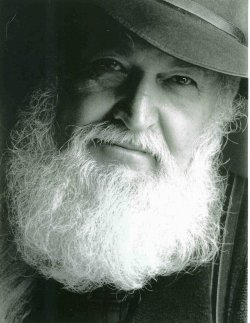You could also call this How Government Solved the Health Care Crisis, Part II; Part I being Roderick’s excellent article from 1993, on the government’s deliberate obstruction of mutual aid societies (in order to raise medical costs), and the havoc that it’s wreaked on the medical insurance system ever since.
As a follow-up in a similar vein, here’s an interesting bit I stumbled across in Robert Whitaker’s Mad in America (2002); the topic came up in the course of explaining how neuroleptics, and thorazine in particular — first marketed as chemical lobotomies,
later repackaged as antipsychotics
— took American psychiatry by storm during the 1950s. An essential part of the process was the destruction of private, independent oversight over the therapeutic value of drugs — a medical watchdog system that worked, until government fixed
it.
After World War II, global leadership in drug development began to shift from Germany to the United States, and it did so because the financial opportunities in the United States were so much greater. Drug manufacturers in the United States could get FDA approval for their new medications with relative ease, since at that time they did not have to prove that their drugs were effective, only that they weren’t too toxic. They could also charge much higher prices for their drugs in the United States than in other countries because of strong patent-protection laws that limited competition. Finally, they could count on the support of the influential American Medical Association, which, as a result of a new law, had begun cozying up to the pharmaceutical industry.
Prior to 1951, the AMA had acted as a watchdog of the drug industry. In the absence of government regulations requiring pharmaceutical companies to prove that their medications had therepeutic merit, the AMA, for nearly fifty years, had assumed the responsibility of distinguishing good drugs from the bad. It had its own drug-testing laboratory, with drugs deemed worthwhile given the AMA seal of approval. Each year it published a book listing the medications it found useful. Drug companies were not even allowed to advertise in the Journal of the American Medical Association unless their products had been found worthy of the AMA seal. At that time, however, patients could obtain most drugs without a doctor’s prescription. Drug companies primarily sold their goods directly to the public or through pharmacists. Physicians were not, in essence, drug vendors. But in 1951, Minnesota senator Hubert Humphrey cosponsored a bill, which became the Durham-Humphrey Amendment to the Federal Food, Drug, and Cosmetics Act of 1938, that greatly expanded the list of medications that could be obtained only with a doctor’s prescription. While the amendment was designed to protect the public by allowing only the safest of drugs to be sold over the counter, it also provided doctors with a much more privileged status within society. The selling of nearly all potent medications now ran directly through them. As a result, drug companies began showering them, and their professional organizations, with their marketing dollars, and that flow of money changed the AMA almost overnight.
In 1950, the AMA received $5 million from member dues and journal subscriptions but only $2.6 million from drug-company advertisements in its journals. A decade later, its revenue from dues and subscriptions was still about the same ($6 million), but the money received from drug companies had leaped to $10 million–$8 million from journal advertisements and another $2 million from the sale of mailing lists. As this change occurred, the AMA dropped its critical stance toward the industry. It stopped publishing its book on useful drugs, abandoned its seal-of-approval program, and eliminated its requirement that pharmaceutical companies provide proof of their advertising claims. In 1961, the AMA even opposed a proposal by Tennessee senator Estes Kefauver to require drugmakers to prove to the Food and Drug Administration (FDA) that their new drugs were effective. As one frustrated physician told Kefauver, the AMA had become a sissy
to the industry.
–Robert Whitaker, Mad in America (2002), pp.148–149
State Leftists who write on the medical industry routinely — rightly — talk up the corrupting effects that drug industry money and favors have had on the practice of medicine. But what they need to realize is that this is not some kind of disease endemic to a free market in medicine, or caused by the inevitable contamination from filthy lucre. Until 1951, there was no problem with drug companies bribing doctors to serve as drug-pushers; physicians’ organizations served as a system of voluntary, independent oversight on the claims of the drug industry — until, that is, the government shoved its way in to fix
the problem of overhyped medication. What we found out is what we should have known all along: cartelization corrupts, and absolute cartelization corrupts absolutely.

 Sad news to report today.
Sad news to report today.